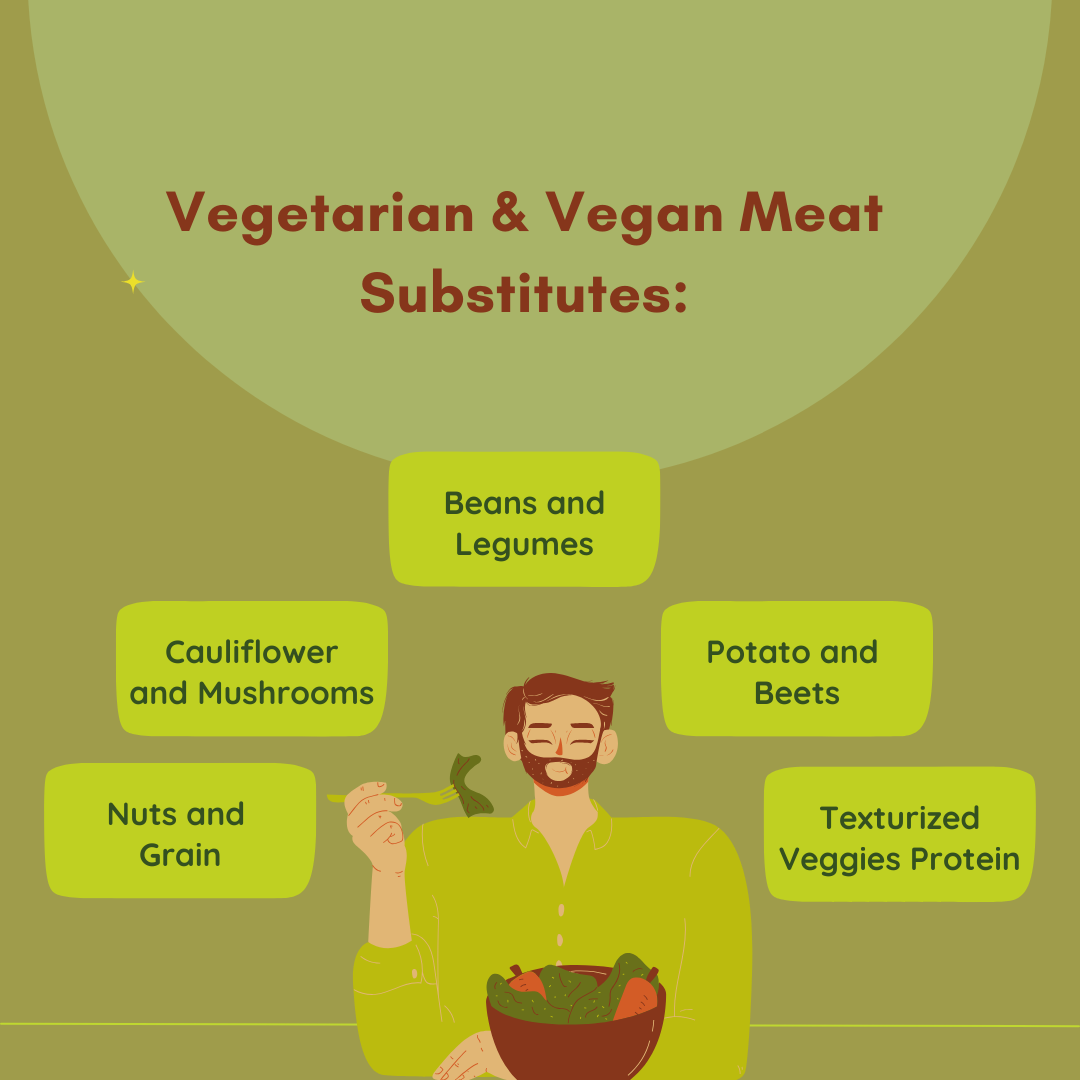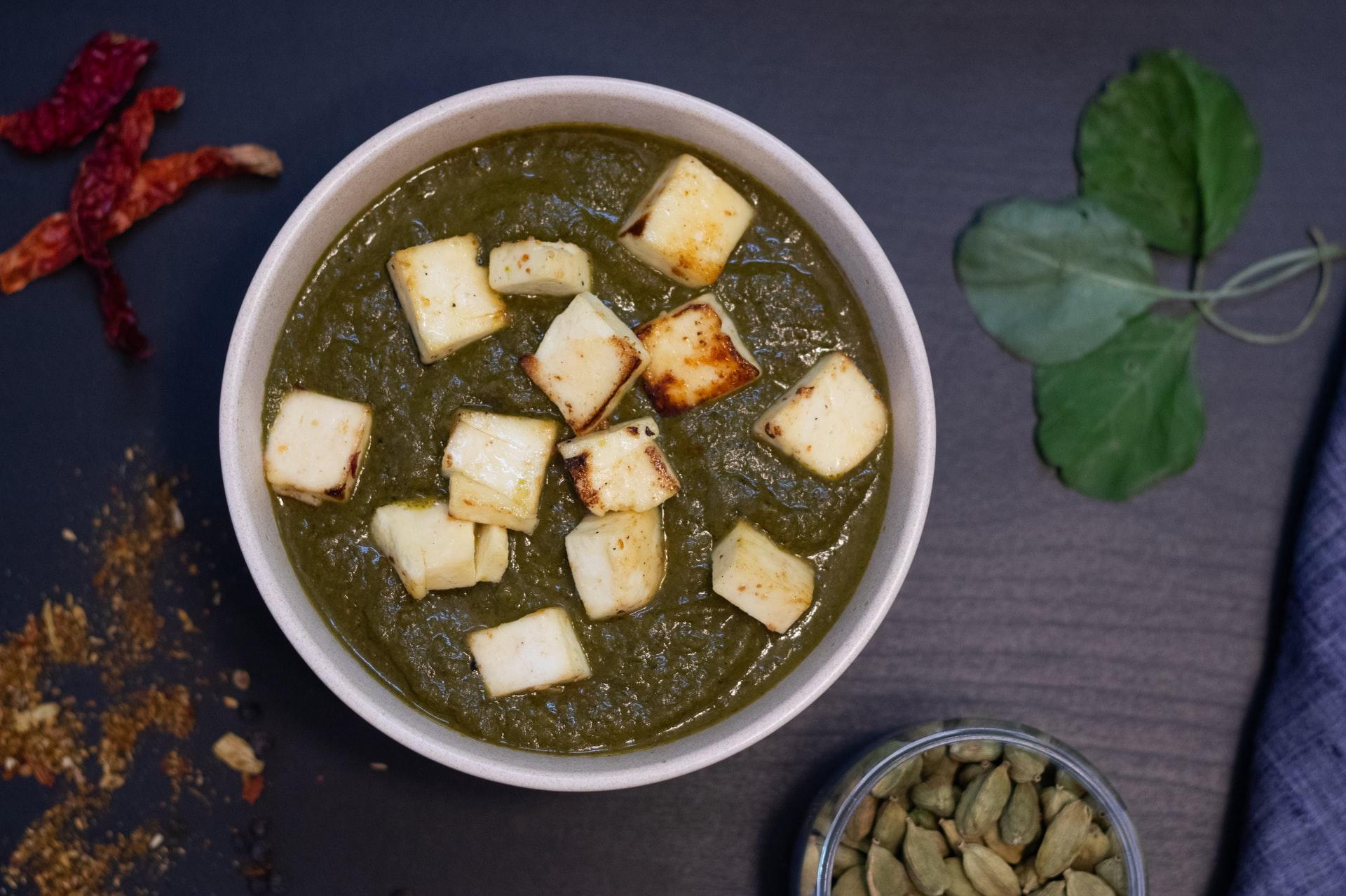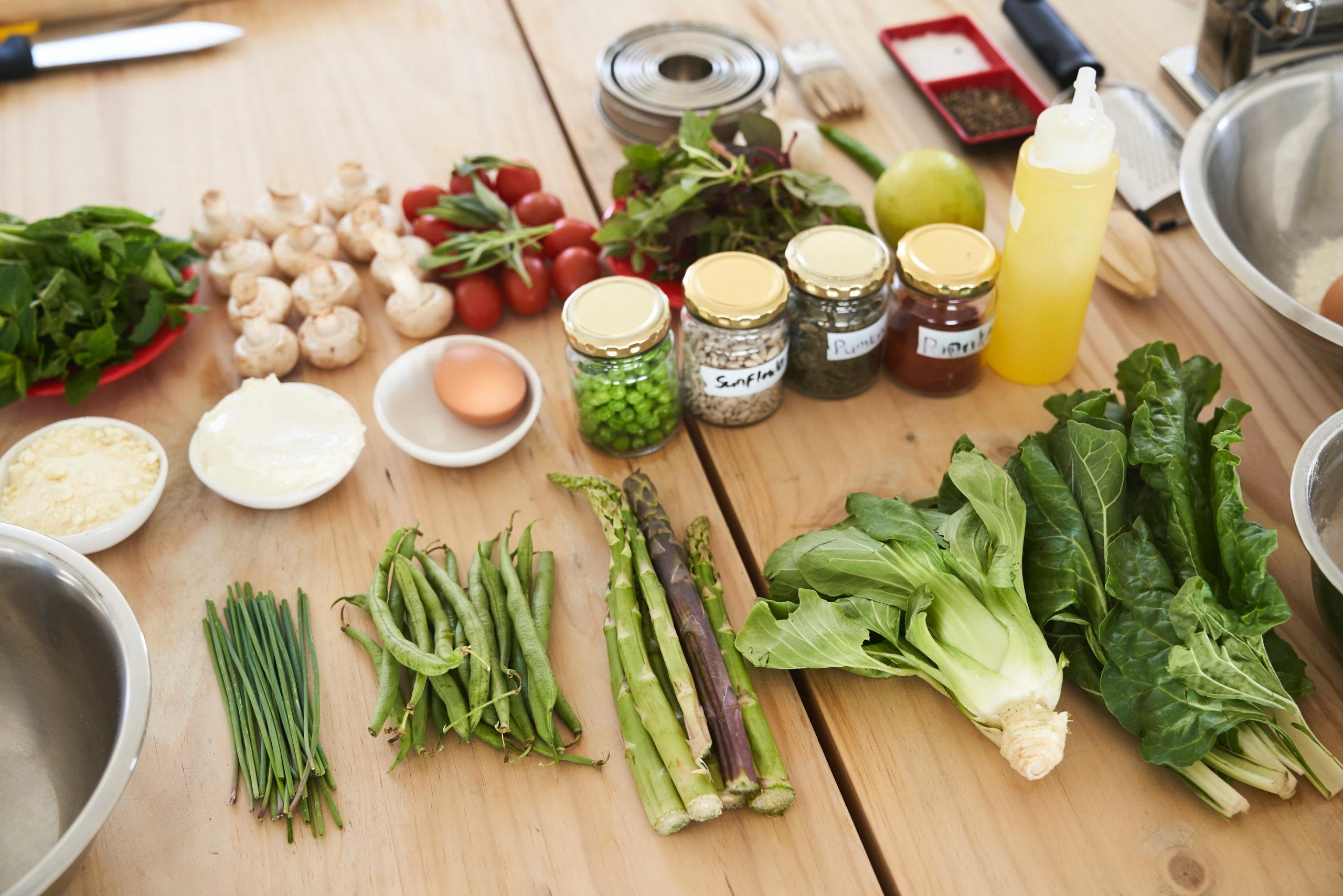The Food and Agriculture Organization of the United Nations ranks India as the second-lowest consumer of meat in the world (4.4 kg per person per year). Despite the clear rise in the consumption of meat in India, one can easily find delicious meat-free food as India has the highest number of vegetarians in the world, with more than 400 million people identifying themselves as vegetarian.
Vegetarianism is deeply rooted in culture and religion.
Vegetarianism in India has its roots in Buddhism and Jainism and their emphasis on the concept of ahimsa or non-violence towards all living things - animals, insects, birds, and humans.
The World Atlas recently published a report listing countries with the highest rates of vegetarianism. India leads the list with 38 percent of its population identifying as vegetarians.
Even many Hindus often shun the consumption of eggs, meat, and dairy products, making India a safe haven for not only vegetarians but also vegans. Indian vegetarianism is not just about religious and cultural beliefs but also about the concern for health and the environment.

When Did Vegetarianism Start in India?
The origins of vegetarianism in India can be traced back to ancient Hindu and Jain traditions, which advocated for non-violence and compassion towards all living beings. Vegetarianism became more widespread in India during the medieval period, as the influence of these religions spread and the caste system began to play a larger role in society.
India stands at the forefront among nations with the highest proportions of vegetarians, as reported by the Food and Agriculture Organization of the United Nations, with almost 38% of the population adhering to a vegetarian diet.
The Bhagavad Gita conveys Lord Krishna's message in Chapter 14, Verse 4, stating, "In every living being, there is a spirit soul," emphasizing that animals also possess a soul. Therefore, we lack the authority to take the lives or consume the flesh of animals.
Vegetarianism in India By Religion
In the realm of religion, Jains exhibit the highest vegetarian prevalence at 92%, followed by Sikhs (59%), Hindus (44%), Buddhists (25%), Christians (10%), and Muslims (8%) according to research.
Among Hindus, regional disparities are notable, with 71% of North Indian Hindus, 61% of Central Indians, 57% of West Indians, 30% of South Indians, 19% of Northeast Indians, and 18% of East Indians identifying as vegetarian. Caste distinctions also play a role, with 40% of lower caste Hindus identifying as vegetarian compared to 53% among general category Hindus.
Additionally, Hindus who ascribe great importance to religion in their lives choose a vegetarian lifestyle 46% of the time, in contrast to 33% for those who consider it less important.
Diet in Hinduism
In Hinduism, diet is an important aspect of spiritual and ethical practices. The dietary guidelines in Hinduism are primarily based on the principles of Ahimsa (non-violence), purity, and maintaining a harmonious balance with nature. While Hinduism does not impose a strict dietary code for all its followers, there are certain dietary recommendations and restrictions followed by many Hindus. It's important to note that these practices can vary among individuals and communities within Hinduism.
Vegetarianism: Many Hindus practice vegetarianism or lacto-vegetarianism, which means they exclude meat, fish, and eggs from their diets. This is based on the principle of Ahimsa, which promotes non-violence and respect for all living beings.
Sattvic Diet: The concept of a sattvic diet is prominent in Hinduism. Sattva is considered to be a state of purity, clarity, and harmony. A sattvic diet includes foods that are believed to promote these qualities, such as fresh fruits, vegetables, nuts, whole grains, legumes, dairy products, and honey. It emphasizes natural, unprocessed, and pure foods.
Avoidance of Beef: Cows are considered sacred in Hinduism, and the consumption of beef is generally avoided by many Hindus. This stems from the reverence for cows as symbols of motherhood and providers of resources like milk.
In Hinduism, cows are revered as sacred animals and are considered to be a symbol of abundance, fertility, and motherly love. They are believed to be the earthly embodiment of the goddess Lakshmi, who represents prosperity and wealth.
Fasting: Fasting is a common practice in Hinduism and is observed on various religious occasions and festivals. During fasting, individuals abstain from consuming certain foods or limit their food intake. The specific fasting practices can vary depending on regional customs and personal choices.
Ritualistic Offerings: During religious rituals and ceremonies, offerings are made to deities. These offerings, known as prasadam, are usually vegetarian and are considered blessed. Devotees may consume prasadam as a sacred food.
Personal Preferences: It's important to note that dietary practices can vary among individuals based on their personal preferences, cultural influences, and regional traditions. While many Hindus adhere to vegetarianism, some may consume meat or seafood in moderation.


Vegetarianism In Indian Culture: Vedas
Vegetarianism has a significant presence in the Vedic scriptures, which are ancient religious texts of Hinduism. While the Vedas do not explicitly mandate vegetarianism as an absolute requirement, they contain teachings and ideals that align with a vegetarian lifestyle. Here are some aspects related to vegetarianism in the Vedas:
Respect for life: The Vedas emphasize the concept of ahimsa (non-violence) and advocate for the protection of all living beings. This principle is deeply rooted in Hindu philosophy and is considered a fundamental value. Vegetarianism is seen as a practical way to practice ahimsa by avoiding the harm and killing of animals for food.
Rituals and offerings: Vedic rituals often involve the offering of vegetarian ingredients such as fruits, grains, and dairy products to the deities. Animal sacrifices were also a part of ancient Vedic rituals, but with the evolution of Hinduism over time, the emphasis shifted towards vegetarian offerings as a means of worship.
Concept of purity: The Vedas emphasize the purity of mind, body, and soul. Many Hindus believe that consuming vegetarian food promotes physical and spiritual purity. Vegetarianism is seen as a means to maintain a clean and pure lifestyle that aligns with spiritual goals.
Reincarnation and karma: The concept of karma and reincarnation is an integral part of Hindu philosophy. The Vedas teach that every action has consequences and that one's actions in this life can influence future lives. By practicing vegetarianism, individuals aim to accumulate positive karma and avoid causing suffering to other living beings.
Sattvic diet: The Vedic scriptures describe three gunas (qualities of nature) that influence human behavior and consciousness. The sattvic guna represents purity, goodness, and harmony. A sattvic diet, which is predominantly vegetarian, is considered beneficial for promoting a calm and peaceful state of mind, supporting spiritual growth, and enhancing one's overall well-being.
The History of Vegetarianism in the World
Before we delve deeper into the origin and practice of vegetarianism in India, let's find out how this popular dietary habit came about in the ancient world.
World Vegetarian Day is celebrated every year on the 1st of October.
The Pythagorean Diet
The world mostly associates the Ancient Greek philosopher, Pythagoras, with his celebrated mathematical theorem. However, did you know that, for centuries, Pythagoras was the accepted father of vegetarianism? Indeed, a meatless diet in the ancient and medieval world was referred to as a Pythagorean diet for years until the mainstream vegetarian movement of the modern world gained momentum in the mid-1800s.
Even before Pythagoras started advocating for a meatless diet, humans were believed to be vegetarians since well before recorded history. Many archaeologists and anthropologists are of the consensus that early humans would have eaten a predominantly plant-based diet as plants were much easier to procure in nature than animals or birds in the wild. Moreover, the human digestive system resembles that of herbivores, more than it does that of carnivorous animals.
Prehistoric man ate meat, of course, but plants formed the basis of his diet.
The main reasons why Pythagoras proposed and practiced vegetarianism were mainly due to religious and ethical objections. The philosopher believed that all living beings, including animals, had souls.
Therefore, meat and fish found no place in his diet. However, strange as it may sound, Pythagoras also opposed the consumption of the harmless bean, a favorite among vegetarian eaters of the modern world. This was because of his belief that beans and humans were created from the same material.
Pythagoras had a special dislike for fava beans for their hollow stems that could allow the souls of the dead to travel up from the soil into the growing beans!
Check out vegetarian inspiration with the best Indian vegetarian bloggers.
Find various cooking classes in Gurgaon here on Superprof.

Casteism and Vegetarianism
Vegetarianism in contemporary India is a continuation of dietary traditions and beliefs central to Brahmanism and the caste system of the ancient Vedic society. Upper caste communities, barring a few, are expected to strictly maintain vegetarianism, while such restrictions seldom apply to the so-called lower castes. However, most Hindus belonging to the upper castes, at least those in urban India, have generously taken to non-vegetarian foods as well!
Some commentators suggest that Hinduism owes its resurgent vegetarianism to Jainism and Buddhism.
Vegetarianism in modern India has evolved in two ways. The first pertains to the Brahmanical conformity and caste sensibilities, especially followed by the traditionally vegetarian upper castes. The second evolutionary pathway has seen the adoption of vegetarianism through the influence of populist religo-spiritual cults, headed by gurus (Ramdev, Sathya Sai, and many others), and thriving across India in recent times.
Find various cooking classes in Bangalore here on Superprof.
Popular Indian Vegetarian Dishes
At a superficial level, one may find similarities between Indian vegetarian food and Indian non-vegetarian food because most dishes have gravy in them. This gravy is usually prepared with vegetables like onions and tomatoes, and, sometimes, with cashews or spinach. Many different spices are added to the gravy to give it a unique flavor.
Most vegetarian and non-vegetarian dishes in India are either eaten with rice or flatbread (roti). The dishes that are prepared dry (without gravy) are called sabzis. These are roasted vegetables prepared with a myriad of spices. Here are our top picks in vegetarian foods in India!
Aloo Gobi
A favorite sabzi in many Indian households, aloo (potato) gobi (cauliflower) is a dry dish that is typically spiced with turmeric, curry leaves, and sometimes kalonji (fennel). The yellow color of the dish is derived from the addition of turmeric powder, with garlic, ginger, onion, coriander, tomatoes, peas, and cumin rounding off the flavor.
Dal
Dal or lentil soup, in its varied local forms, is one of the staple dishes across the length and breadth of India. Dal is usually seasoned with turmeric, cumin, cinnamon, asafoetida, and red chilies. Typically, there are 3 popular versions of the dish in India, namely, yellow dal, green dal, and black dal.
Malai Kofta
A flavorful and delicious vegetarian alternative to meatballs, malai kofta is prepared with a combination of potatoes, a mixture of vegetables, paneer, heavy cream, and spices, formed into balls. The koftas are stuffed with chopped nuts and raisins, deep-fried, and served in well-seasoned gravy.
Palak Paneer
A favorite accompaniment for roti lovers, palak paneer is a healthy and delicious dish made with cubes of pan-fried paneer (cottage cheese), simmered in a spinach-based gravy. The whole preparation is seasoned with fenugreek leaves, onion, garlic, tomato, and unique Indian spices.
Matar Paneer
This one is another popular vegetarian dish in India. Matar is the Hindi word for peas, the primary ingredient in this preparation, along with paneer (cottage cheese), of course. Matar paneer is cooked with traditional Indian spices, such as coriander, cumin, turmeric, and garam masala, and usually served with naan or roti.
Find various cooking classes near me here on Superprof.

Pav Bhaji
What was once a popular street food of Mumbai, pav bhaji has now entered the modern Indian household as a wholesome vegetarian meal. It includes a sauce that is made from an assortment of vegetables, such as potato, cauliflower, tomato, and peas, along with a toasted, buttered bun.
Check out these top Indian food bloggers for the perfect vegetarian recipes for your Indian kitchen!
Vegetarianism: India's Gift to the World
Tracing the history of vegetarianism in India, we have come to learn that it was the practice of Jainism, particularly under the 23rd Tirthankar, Vardhaman Mahavira, almost 2,500 years ago, who preached an extreme form of ahimsa, that led to the widespread acceptance of the vegetarian diet in the subcontinent. Mahavira's contemporary, the Buddha, was also a proponent of ahimsa. However, the Buddha was more practical in his outlook and allowed Buddhist monks to eat any food put in their alms bowl, including cooked meat.
Since the times of the Buddha and Mahavira, vegetarianism has risen in prominence in India, even among the Hindus. Many Brahmin and trading communities across the country adopted a vegetarian diet. These traders spread the message of non-violence to other countries, beyond the shores of India, on their travels. Thus, it can be said that vegetarianism was India's gift to the world.
Discover amazing cooking classes and start making incredible food today!
If you are looking to go vegetarian the best way to start is by understanding the morals and ethics behind the decision. Once you go veg! there should be no looking back!
Go Vegetarian in 2024!
Summarise with AI:
















vardhaman mahavir was the 24th tirthankar
Is vegetarianism a gift?
Yes, we believe so. Every living being has a right to be alive and be treated equally.